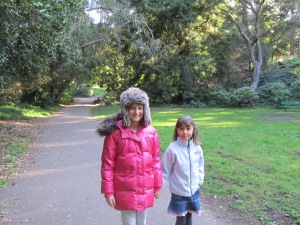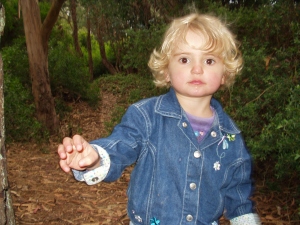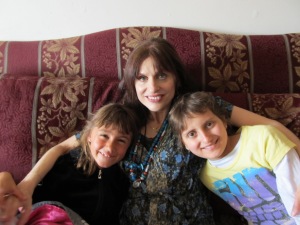I Never Wanted You to Label My Late Child a ‘Hero’

By Suzanne Leigh
Published on Huffington Post and Mothering
We know that kids with cancer are heroes, right? The Leukemia and Lymphoma Society organizes an annual prom for its “little heroes” and a St. Jude affiliate clinic features a “wall of heroes,” depicting young cancer patients. And cancer parents’ CaringBridge sites routinely mention their child’s heroism.
But does a cancer diagnosis confer hero status? Not if you consider that cancer doesn’t discriminate on the basis of niceness. If it strikes children like my own 12-year-old, it has also seized the lives of the despot Ayatollah Ruhollah Khomeini, the “night stalker” Richard Ramirez and the controversial president of Venezuela, Hugo Chavez.
My daughter is my hero. The sicker she became the more gratitude she expressed to her family, the more empathy she demonstrated for those with vulnerabilities and the more generous she became with her possessions, her hugs, her ability to let go and forgive (something that her mother still struggles with).
But I remain guarded about the reckless use of the ”h” word when it comes to cancer. Natasha was kind, compassionate and gracious, and over time she did not bear her disease with astonishing bravery. To those she felt safe with, she riled against the hospital visits, the treatments, and the disease that plundered her energy and her once shining plentiful hair, dulled her quick wit and stunted the smooth strides that effortlessly completed 5K runs.
After enduring cancer treatment, the aftermath of treatment to be followed by a plethora of more treatments, my daughter’s capacity for pain had dwindled. She cried in anticipation of blood draws, she grimaced when I brushed her hair – however gently – and spoke of an all-pervasive pain. She was a child that had had it with cancer. To those she loved and trusted, she didn’t soldier on with a smile on her face as the hero-philes would have it. She mourned the injustice of the good health that she had irrevocably lost, noting that her friends who had morphed into gangly preteens got to play a brisk game of basketball.
I’m reading John Green’s “The Fault in Our Stars,” the bestselling novel about two smart-talking teens with cancer, which has been made into a highly acclaimed movie. In it, Augustus, the boyfriend of the narrator, describes his late girlfriend who died from a brain tumor. Was Caroline a hero? Not according to Augustus. “Cancer kids are not statistically more likely to be awesome or compassionate or perseverant or whatever. Caroline was always moody and miserable, but I liked it. I liked feeling as if she had chosen me as the only person in the word not to hate … She was not, you know, the paragon of stoic cancer-kid heroism,” he says.
Yet when Caroline died, thousands wrote online tributes describing her “heroic fight,” how much she would be missed and that she would live forever in their memories.
Perhaps this is what is wrong about labeling kids with cancer as heroes. Not only is it an awful lot to live up to for those in fragile health, who might rightly resent their decline, but it gives those of us who don’t know how to interact with them a free pass to keep them at a distance. Pronouncing them a hero puts them up perilously high on a pedestal, where we can view them silently in awe, too far away to see the pain, loneliness and frustration reflected in their eyes. Children with cancer don’t need our hero-worshipping, our proclamations that they are “so brave,” “such a trouper;” that they “never complain” and are “so inspiring.” They need us to stick around and accept them – cancer and all.
To receive e-mail notification from WordPress after each new post of The Mourning After Natasha, please hit the “Following” button. WordPress will ask you for your e-mail only.


I respect your opinion and am deeply saddened reading about your daughter. I respectfully disagree. My daughter is My HERO! She was 11 at diagnosis with medulloblastoma. From the start she handled this like no one would ever imagine. Yes she was scared, yes she was in pain, yes she hated cancer, but she was a fighter none the less. There was nothing she liked about cancer, it’s treatment, it’s side effects but she never let it define her. She grabbed cancer by the horns and fought while still embracing all the things she learned throughout this devastating journey. She earned her angel wings March 25, 2014. Her cancer returned 6/13 after 5 1/2 years clear. Cancer has no mercy. Cancer robbed my daughter of so many things but everyone who knew her saw her as their HERO. I don’t feel she had to live up to any higher standards, she was not placed on a pedestal. She simply lived her life. I have such respect for how she did live her life. I learned so much from her. She will always be my HERO. She was my daughter and my best friend. I love her and miss her every second of everyday. I respectfully disagree with labeling our childhood cancer patients as heroes. I did not label my daughter a hero, she lived her life and in doing so she was and still is a HERO.
Please read it again, Terri, especially the first sentence of paragraph three. I think we both agree about quite a lot when it comes to our daughters, although we might diverge in other areas. I’m so sorry about your child.
I’m so sorry you lost your daughter, but I love your descriptions of her – that recognition that an illness, even one as cruel as cancer, doesn’t automatically make a patient brave. It sounds as though she was beautiful, and kind, and human.
Take care
Lucas
Thank you, Lucas!
I agree, calling cancer patients heros can put a lot of pressure on them – making them feel that they have to be brave and put on a “mask” like everything is ok. They need to know that it is ok for them to break down, to cry, to not always be “ok”. They are fighting a great fight – a huge battle – one that they never asked to fight, but to simply put such a burden on them is hard, especially when they are a child.
Yes, Marie, that is absolutely true.
Suzanne, this was beautifully written. I have lost a few relatives to cancer and remember how hard they struggled to their very last breaths.
I will think of you and Natasha today…and for many days to come.
With heart,
Dani
Dani, Thank you! With heart, too.
[…] and Meghan, mom Suzanne turned to words to help deal with the pain of a devastating loss. In her latest post, she explains why she’d prefer that you didn’t call her child a […]
Very well said. My wife of 34years died of cancer last year. We never saw her as a hero–she was a victim,a casualty of cancer. Keep writing, you will find happiness, but you will always remember.
Thanks, Stephen. I want to always remember and I want those who knew my Natasha to always remember her, too. Thank you for your kind words and I’m so sorry that your wife died.
A beautiful tribute to your daughter. I am sure you will inspire many to walk through the difficult journey as I have.
Karen
Thanks for describing the blog as a “beautiful tribute” to my Natasha, Karen. Means a lot.
[…] and Meghan, mom Suzanne turned to words to help deal with the pain of a devastating loss. In her latest post, she explains why she’d prefer that you didn’t call her child a […]
[…] and Meghan, mom Suzanne turned to words to help deal with the pain of a devastating loss. In her latest post, she explains why she’d prefer that you didn’t call her child a […]
Hi Suzanne,
Your’s is a beautiful post. I’m happy to see the smiling faces of both daughters.
Our daughter lost a son, Andrew, who lived 7 months and died not from cancer but a condition incompatible with life. I’ll offer you the last verse of a poem I wrote for his service. Writing does help.
Nearby I’ll flutter forever,
lighting the way to your peace.
His arms so gently encircle;
it feels like my smile as I sleep.
Thank you, Pam. Lovely.
[…] and Meghan, mom Suzanne turned to words to help deal with the pain of a devastating loss. In her latest post, she explains why she’d prefer that you didn’t call her child a […]
[…] and Meghan, mom Suzanne turned to words to help deal with the pain of a devastating loss. In her latest post, she explains why she’d prefer that you didn’t call her child a […]
How true this is! What incredible insight you have. People call you a hero and then can worship you from a far. I always hated being described as brave, warrior etc. You do what you have to do because there is no choice, you do not know how strong you are till being strong is the only option. Thank you for your blog, I am so sorry that you lost Natasha.
Thanks for your kind comments, Kelly, and the mention of my daughter’s name (always a bonus!) And I’m so sorry that my argument resonated with you for the most horrible of reasons.
Dear Suzanne, I recently stumbled upon your blog about your beautiful daughter Natasha. Your writing is so deep and honest. I am so sorry. I am so sorry Natasha isn’t a teenager who is begging you to buy her an Iphone like she should be. I am sorry she isn’t there in person for you, her sister and her Dad. Natasha is not forgotten. I just “met” her. Others will learn about her too. Keep writing, we will read.
One day, we will change the fate of children diagnosed with cancer- because of the awareness you spread by writing about Natasha.
Sincerely, Asha mom of 10
Kind words, Asha. Thank you for “meeting” my Natasha.
Incredibly insightful and important to keep in mind. Thinking about Natasha, feeling a step closer to knowing after reading this. Hugs.
Thank you, Kamila!
I’m very grateful to have just discovered your site after losing my daughter a few months ago. Thank you for sharing your pain and expressing it so beautifully. The UK have just run a long campaign encouraging us to “stand up to cancer”. To me this implies that a child should be able to see off such a horrible, aggressive disease and can’t be trying hard enough if it’s getting the better of them. My daughter’s cancer started in her spinal cord, so simply standing had became a challenge in itself. I also agree that a distance is created by attaching hero status to the sufferer. Being “brave” or “inspirationa”l I also struggled with.
The mind and body’s will to survive against all odds is incredible, so I would like to think of my daughter, and yours if that’s ok, as incredible.
I love “incredible,” Louise. My daughter is/was incredible and I’ll bet yours is/was, too. I’m so sorry ….
Thank you for sharing your insights. We have a “Stand Up 2 Cancer” campaign here in the U.S. I did not think of it this way and I appreciate your input.